We recently got publicly called out for greenwashing & we wanted to take the opportunity to share the backstory, our response & also do an episode all about greenwashing.
In this episode we talk about what greenwashing is, we share examples from some very well known brands & also provide actionable advice to help you avoid greenwashing.
0:00 – 1:13 Intro
1:13 – 1:55 A Controversial Start
1:55 – 7:55 What is Greenwashing?
7:55 – 12:58 Knowlton, Called Out (the story)
12:58 – 21:18 Positive Impact Plan
21:18 – 26:45 What can people do to avoid greenwashing?
26:45 – 27:30 Thank you

Kallum 0:01
Hi, Kallum here. If you’re following Knowlton content, and you should be, then you’ll be familiar with the term greenwashing. If you don’t, then you’re just not cool enough to know. Only kidding. In today’s episode, the boys address getting called out themselves for greenwashing.
Dan 0:16
We got publicly called out or challenged on social media about us as a company, greenwashing
Kallum 0:23
and Lloyd spills the tea and some household brands have gone through some major greenwashing scandals.
Lloyd 0:28
McDonald’s innocent smoothies, H&M, Volkswagen…
Kallum 0:32
So there you have it. I can hand on heart say Knowlton is the most eco-friendly workplace in the world with two of the kindest and best-looking bosses ever. Were those okay guys? This is episode 109 of the business anchors podcast.
Dan 1:01
A couple of things Lloyd, one, why did we get caught out for greenwashing and two, other than people hearing an interesting story, what are the anchors going to get from this episode?
Lloyd 1:13
Controversial start. Have we ever started with two questions?
Dan 1:15
That was a controversial start.
Lloyd 1:17
I assume I’m gonna forget the second question. I’ve actually forgotten what the first one was! What was the first question?
Dan 1:27
Why did we get called out for greenwashing?
Lloyd 1:29
I see, we got called out for greenwashing because someone thought that we were greenwashing.
Dan 1:37
Sorry, this is gonna be one of those episodes, This is gonna be a good one, I can tell. Tell us more about this greenwashing. We got publicly called out or challenged on social media about us as a company greenwashing. I guess what is greenwashing because some people will be thinking what on earth is that?
Lloyd 1:55
So the first question, but I’ll go straight to that one. So I’ve got a definition. Greenwashing is the process of conveying a false impression by providing misleading or providing misleading information about how a company’s products or services are more environmentally sound. Greenwashing is considered an unsubstantiated claim to deceive consumers into believing that a company’s products are environmentally friendly.
Lloyd 1:55
So in simple terms, someone thought that we were saying, Oooh, we are really good for the environment. We’re doing good stuff. When really behind the scenes, we were just like burning plastic in our office. Yeah, not doing good stuff.
Lloyd 2:31
Yeah, that’s probably an exaggerated version of what happened but yeah, they called us out publicly on LinkedIn in response to one of our videos saying you’ve got all this on your website, but I can’t see any evidence of it and stuff like that. So, we are going to get to that and kind of exactly what he or she said, and our response and that kind of thing. But first, I’ve got some examples of greenwashing for you who want to hear oh god examples.
Dan 2:58
Ooo, go on, Yeah.
Lloyd 2:58
Just so people get what we’re talking about. Also, people might want to change their behavior when they realize what’s happening. Who knows? So first one! McDonald’s.
Dan 3:09
Okay.
Lloyd 3:10
In 2019, don’t know if you remember the whole thing about getting rid of plastic straws. McDonald’s got rid of plastic straws and replaced them with non-recyclable paper straws.
Dan 3:21
Oh, you’re joking, are they non-recyclable?
Lloyd 3:24
They are recyclable now, but in our time they were non-recyclable. So that is like a typical thing. It’s pretending to deal with the issue to the public so that they give you money but not dealing with the issue at all. Another one is innocent smoothies. They recently, I think it was this year, had a TV campaign, they had some cute animals singing songs about recycling and fixing the planet. I don’t know if you would have remembered. but it’s fairly recent. Those ads are banned now. Coca-Cola owns innocent smoothies and they’re the worst plastic polluter in the world, literally in the whole world and innocent smoothies served up in single-use plastic a lot of them so yeah, the ads were banned because they’re basically like you’re the worst people.
Dan 4:14
That is taking the piss, isn’t it?
Lloyd 4:16
Yeah. Got three more examples. H&M in 2021 fast fashion brands. So fast fashion is notoriously bad for the planet. The whole thing of telling people you need to buy new clothes every season, because your ones are going to be not cool anymore soon. It’s really bad for the planet. And so, changing Markets Foundation, who I have to say hadn’t heard of before this, looked into these fast fashion brands in the UK, and they looked at all the major high street fashion brands and found out that 60% of their sustainability claims were misleading. With h&m 96% of their sustainability claims were misleading. So they were found to be lying about everything. So they had actively made an effort to be putting the sustainability claims on how they’re doing now. It was just bullshit.
Lloyd 5:22
Volkswagen, that was a big one. They had devices too so it said that fewer emissions were coming out.
Dan 5:32
Oh yeah, this one is bad!
Lloyd 5:33
Yeah, the device detected when a test was happening, and then lowered the emissions while the test was happening. So it’s clearly like they want to be saying how good their emissions are so they faked it. Anyway, the final one, Starbucks in 2018 they released a strawless lid, as part of their sustainability thing that to go on the top of a cup, so that you wouldn’t need a plastic straw and the strawless lid was found to have more plastic in it than the old lid and straw combination. Starbucks came back and were like, oh, no, but this is made of polypropylene so it’s a better plastic for recycling. Then it was pointed out that only 9% of the world’s plastic is recycled. So that doesn’t make a difference. So yeah, basically those taking actions to try and use sustainability to get more customers and attract money and customers, when actually, you’re not taking the actions that help.
Dan 6:38
Can I give you one example that I’ve got? this isn’t my example but I posted about this recently on LinkedIn and someone shared an example. They recently ordered a coffee from McDonald’s and brought in their coffee mug to save them using the plastic and they said ‘Oh, can you put it in there, please’ and the people at Mc Donalds serving said, we’re not allowed to do that but, what we can do is pour it in a cup for you and then you can pour it in your cup and chuck that one away.
Lloyd 7:06
Makes no sense.
Dan 7:09
Just completely stupid.
Lloyd 7:10
Because that would make you greenwash because you have used a paperless cup, but you’re trying to make it look like you haven’t.
Lloyd 7:19
Yeah, just interesting. Very strange.
Dan 7:22
So there are some interesting examples. So shall we get into it? Actually no, sorry. Let me ask you this. Back to us getting called out publicly. How did that make you feel?
Lloyd 7:37
Completely honestly, because that’s what we do
Dan 7:39
Completely honestly.
Lloyd 7:40
So I don’t feel this anymore but I felt a bit annoyed because I was thinking well someone is trying to, and this wasn’t necessarily their intent, trying to damage our reputation by questioning our integrity.
Dan 8:00
I guess because it could have been done in private. Initially.
Lloyd 8:03
Yeah. So that was my initial feeling. I was annoyed because I thought, Well, I suppose because it doesn’t feel nice when someone kind of says, Yeah, says you’re lying, or you’re deceiving people. Then once I got over that, I thought, like, Oh, this is good. Like, we should be having these conversations with each other. And because of that I’m confident that we do the right thing. So we can answer and say, Oh, actually, this is what we’re doing but say that we weren’t, or other companies are that would have been a good thing that would either make that company change or make people potentially stop considering working with them if it’s found out to be true that they are greenwashing and that kind of thing. So I think overall, it’s a positive thing and I felt positive about being challenged. Once I got over the initial, human instinct to feel like, ‘Oh, I’m not trusted’ and that doesn’t feel nice.
Dan 8:58
It’s always that immediate thing of like a PR thing we could be at risk of having a negative perception of our company. Then you’re like, oh, no, let’s just look at what’s happened. Oh, we are doing the right thing. Let’s go out there and communicate what we’re doing.
Lloyd 9:14
There are probably a handful of people that saw that comment and might have thought Oh Knowlton is greenwashing and they’ve never seen our responses or anything. So it probably had a small negative effect on our reputation from that comment…
Dan 9:27
But, to flip that on its head, I think, overall, it’s positive, because we are doing the right things that we’re gonna speak about in this episode, we’ve now got an opportunity to talk about the good things we’re doing. I guess the reason we didn’t originally is ironic, because we didn’t want to be seen as greenwashing or like talking about stuff before we’ve done it. But now because someone’s challenged as well like we are doing this.
Lloyd 9:50
Communicate what we’re doing. So do you think the listeners need to hear the yes comment?
Dan 9:58
Yeah, let’s Yeah, let’s go for that.
Lloyd 10:00
Okay.
Lloyd 10:01
So, listeners, this is what we’re talking about when Knowlton was called out for greenwashing. Dan and team, I love your videos and have done them for years. So please consider this a healthy challenge, not an attack. If people don’t challenge these things, we’re part of the problem. You’ve just published a vid about greenwashing. but what is not actually doing? phrases on your website include ‘Make your video and social media marketing have a positive impact on the world’ How? we operate as a carbon-negative company, has that been independently verified? Are you ready for your marketing to positively impact you, your customers and the planet? Again, how? looking through your site I can’t find anything to do with sustainability or ESG apart from that you have an Ecology subscription through which you’ve bought carbon offsets and funded tree planting but have you measured your scope one, two and three emissions to work out what your business’s carbon footprint actually is? and then work to reduce it as much as possible? or have you skipped straight to offsetting? a positive impact on the world is a bold claim. I don’t see it being justified in which case, it’s misleading, in which case it’s greenwash. We all need to remember what we should do before we speak actions over words and all that jazz.
Dan 11:16
You need to get better at reading.
Lloyd 11:18
I just can’t read or speak. So that was the entire comment and as we said, by the way, we’re not gonna mention who this is. To make it clear, absolutely no hard feelings or any negative feelings towards this person. So please, please don’t try and find that person and be like, he was just or she or they, or they or them, we’re, I think just believed that we may have been deceiving people. So I wanted to call that out. So their intentions, I believe, were positive in some ways. So with that said, the big thing at the start is how does the work? So he said, How are you having a positive impact on the world? He or she or they. We responded, basically responding saying this refers to our positive impact plan. That’s something here and ultimately at the heart of everything we do. So we, we are, it depends how you want to say climate positive, or carbon negative people say in different ways. We’ve been working hard to reduce our carbon footprint, but we offset our carbon footprint that is left and more than that. So we’re having a positive impact on that. Rather than adding carbon, we are doing the opposite. We’re taking it out of the atmosphere if you look at the net contribution, so that’s why we’re having a positive impact.
Dan 12:58
But it’s a lot more than that as well.
Lloyd 12:59
Our impact plan is a lot more than that. That’s like a simple part that this commenter was kind of revolving his comment around, but we’re constantly making changes to increase our positive impacts on the world basically, to our people, our customers, our community and the planet. This comment was far more focused on the planet side with us, its community, our people, and customers as well. But this person he, they, she, them weren’t as bothered about that. Just to be clear, I thought it would be good to actually say some of the things we’re doing here. Yeah, we have a positive impact crew, who now meets once every two months and they basically review the actions that we’ve implemented over the last two months, come up with new ideas and set actions to improve it again. These are things that reduce our carbon footprint that have positive effects on our community and the planet.
Lloyd 14:01
We’ve got a positive impact crew Slack channel that we all talk about stuff on
Lloyd 14:05
Some of these are super like minor things. These are sort of things that we’ve done in the last couple of months. So what we are working towards in these two months, reduce aircon usage by opening windows. It’s a very small thing. Turn off charges once fully charged, a small thing. Reduce electricity usage with a timer on the drinks fridge, compost food waste and coffee grounds. I’d say that’s quite a big thing that not many people are doing. Eliminate single-use plastics from shoots. We used to take a lot of plastic bottles and things to video shoots. This one is not to do with the planet but this is more to do with our people. So regular praise for any, I really can’t talk today, can I?
Dan 14:08
You got this.
Lloyd 14:12
Regular praise for everyone at Knowlton so we’ve made an anonymous ‘Nice Things Box, where we put nice notes about our colleagues and when we read them out once a week.
Dan 15:04
I love that one.
Lloyd 15:06
Some things that I’ve been working on the last couple of months are that we’re implementing track industry pay overtime to ensure the Knowlton team are being paid fairly, creating official work from home guidelines for maximum flexibility for our people. Looking at the government thing of giving 45 PMR fees and people’s cars because that’s not enough. Back to the planet, buying hand towel hooks, so we can use reusable hand towels rather than paper towels, and adding better sizes for our bins so we improve recycling. So a lot of those things are very small things but just thought I’d tell you the reality of it, that we’re taking all these tiny actions every day, and we come up with new actions consistently to improve what we’re doing.
Dan 15:55
It’s not just offsetting stuff, which is the easy route, we’re actually making real changes to the way we operate to improve.
Lloyd 16:04
So that’s the thing. So this commenter the part where he sort of he or she said, I can’t see anything to do with sustainability, apart from Ecologi subscription, which he brought carbon offsets and funded tree planting but have you measured your scope one, two or three emissions? What your carbon footprint is, and what reduces it as much as possible? Or have you skipped straight to offsetting?
Dan 16:30
So?
Lloyd 16:30
Yes, we’ve measured our scope, one and two emissions and we’re currently waiting on funding that we’ve applied for to calculate our scope three emissions.
Dan 16:31
That answers that.
Lloyd 16:38
We’re continuously reducing our carbon footprint as much as possible. As I said, we are continuously implementing new things, and meeting every two months to review them and implement even more new things and we’re consistently reducing that so yes. Have you skipped straight to offsetting? No, not. So we’ve been focused on this stuff since about 2018.
Dan 17:13
We just haven’t chatted about it.
Lloyd 17:14
We’ve been reducing our carbon footprint relatively over that time, but we just haven’t communicated on it. We didn’t want to be Greenwashing. This is something that I think, is a big learning point from being challenged. So we went from doing good stuff and not talking about it at all. Then we started talking about it, because we’re like, oh, we’re doing, we’re kind of ahead of the curve for a business of our size, we’re doing far more than any other business, we can see at a similar size to us. So we’re like, we should talk. We’ve been taking action for years, and we’re stepping it up. To be fair to this commenter. We don’t have a page on our website explaining this. There’s nowhere people can go to see actually, what are we doing? So this person went on a website saw claims, saw nothing to back it up, and then thought, I’m gonna get these guys to challenge them. So that’s something that we’ve now discussed, we do need to actually communicate this stuff definitely more efficiently. So if someone’s thinking, hang on, you’re saying this stuff? What are you doing there somewhere, we can do it and say, you can see everything here if you have any questions.
Lloyd 17:30
This podcast is part of starting that process to talk about this now and then. We’ve got plans to create a page on our website that talks through all of this.
Lloyd 18:34
And with the carbon offsetting. So he or she was kind of saying are you skipping straight to offsetting? because for those of you that don’t know, some people see it negatively to just offset carbon, because I think we should be reducing our carbon footprint, not just paying someone else to offset it. As I said, Yes, we are reducing our carbon footprint, way then offsetting as a last resort. So our footprint after that, we offset it. We’re also offsetting double, because I’ve been focused on this for a few years now. I know how hard it is to do these calculations. So just in case there’s any doubt, or were made, you know, any part of the calculation, we’re making mistakes or anything like that, at the end of our calculation, we just double it and offset that. So I guess yeah, just want to be clear, and this commenter seemed happy with that once they knew that but that’s the level we get. It’s not just we’re saying this stuff and then doing the minimum we’re saying stuff and then trying to do far more than that.
Lloyd 18:37
I do genuinely think as we said before, overall I think this challenge has been useful to us because we now are going to actually better communicate what we’re doing starting from this episode.
Lloyd 19:49
Slightly at the end of the message when it did get slightly passive-aggressive but again, I think because of the comments or thoughts, we are misleading people, so it’s fair enough ‘positive impacts on the world is a bowl claim, I don’t see it being justified, in which case it’s misleading, in which case it’s greenwash. We all need to remember to do this before we speak. So I’m just really happy. We were doing it long before we were speaking. That’s what’s got us into this situation. We’ve been doing loads of stuff and haven’t told anyone. Yeah. And then quite rightly, hang on what you’re doing then?
Dan 20:30
I think the intent was in a good place. I think overall, this is positive, but we need to do this episode to communicate what we’re doing.
Lloyd 20:39
Yeah, by the way, I don’t feel we need this episode to like, try and justify stuff to anyone. It’s more that I think, we found it interesting that we’ve been challenged. It’s like, yeah, actually, we should be asking each other more and different businesses what they’re doing. Then we had the thing to learn. Yeah, we need to communicate better what we’re doing and that kind of thing. But I do think there are actions, if people are kind of thinking, well, I need to make sure I’m not greenwashing. I think some things share these because really the reason we didn’t talk on the web so long is that we didn’t want to be greenwashing. That kind of shot ourselves in the foot.
Dan 21:18
What can people do?
Lloyd 21:20
So number one thing, just take action before you start talking about it. I think we did this for years. So I feel really comfortable with it. We’ve been doing much more recently, which is why we can talk about it even more. But yeah, take action before talking about I think, if you intend to talk about it and then you’re like, oh, we’ll do that or we’ve got to do some stuff so we can talk about it, I would reevaluate kind of where you’re coming from because I think you’re likely to slip up if your intent is ‘we want to talk about positive stuff. So we’ve got to kind of do stuff to enable us to do that’ I think you need to be doing stuff for the right reasons. If you’re, if your business has any benefit from that, which I think probably it will, and I think our business will have benefits from doing the right thing. I see that as a byproduct. and I like ‘Oh, that’s nice that that’s happened’ not our plan to have to get more customers or make more money because of this and now we’ve got to find a way to do it and do good stuff. This sounds simple. Just don’t say anything you’re not doing.
Dan 22:30
It’s really simple but it makes sense, doesn’t it?
Lloyd 22:33
I think to be honest and transparent about the journey. It’s okay to say, we’re trying to do this, but we’re struggling with this thing and we don’t think we’re doing well enough here anymore, like something for us at the moment. We wanted to switch from using paper towels, like throw away paper towels to dry our hands but we bought a box of like 500 or something. So we were like, well, we’ve got to use them. You can’t just burn them. So that’s a challenge we face. I’m happy with being transparent like, we wanted to switch to having washable towels so that we’re not throwing stuff away. We had this dilemma of actions already taken where we bought hundreds. So we’ve gotta get through those and I think being open about that and the journey rather than pretending you’re perfect is better.
Dan 23:22
I think another challenge we have spoken about before is using Amazon, you know, for shoots and things. We order stuff on Amazon. But obviously, we want to get to a point where we don’t have to do that.
Lloyd 23:36
For those of you that don’t know, the three emissions that we’re talking about, they’re much harder to calculate. That’s the carbon emissions from like, your customers and your suppliers and how that’s kind of calculated and all that kind of thing. It’s much more complex. We’re trying to do our best using more local suppliers, rather than Amazon for everything. Also with actors and people, we work with. So if we’re doing a shoot in Kent we’re trying to work with more local people so there’s less traveling, basically, and that kind of thing.
Dan 24:07
Yeah, there’s so much to think about when you get into it. There’s a lot, isn’t it? It’s not just, yeah, let’s do some offsetting. That’s shitloads of really good work that goes in.
Lloyd 24:16
That’s the good part of it, there are loads of things you can do, there are loads of small things you can do. So you don’t have to be perfect. You just need to be moving in the right direction as much as you can. So take some small steps, you know, like, on its own getting a timer for the drinks fridge isn’t going to save the world but that’s one of the 100 things that we’re kind of working on. It’s a good thing to do.
Lloyd 24:18
Yeah. Nice. What other Are there any other actions for people?
Lloyd 24:20
I think actions to take I think if you’re in a business set up, we’ve got the positive impact crew, which is a group of us that want to drive this change and to set up a group of people that give a shit about it. Like don’t try to force people. They don’t give a shit to give a shit about. If there are three of you in your business that cares about this stuff, you can be the ones to take action and help the others around you take action. If you sit down and meet and talk about things that you could do, and then set actions to do it in that group, you’re gonna start taking positive steps. I just think it’s really simple things you could do. Stop using single-use plastic, that’s a simple thing, you can just decide to do that and then be like, Okay, we’re not going to buy any more single-use plastic. Anything you can do to reduce your carbon footprint? So that can be something from the smallest changing your light bulbs to LED bulbs or buying timers for appliances, turn them off. Then the other thing is offsetting any carbon footprint that you have left. So really, you could take any one of those three things I’ve just said and take some action as a first point, but it’s very easy to start. I would just say start by doing something simple.
Dan 26:03
Yeah. Well done. Lloyd. That was interesting. Genuinely, I think you shared some good stuff there. Good. Well, I’m hoping people who listen to this and hear the things we’re doing. Hopefully, it inspires them to want to do something themselves to you as a business.
Lloyd 26:21
If any of our team are listening now, just to let you know, I’ve accidentally picked up an Airbnb invoice with my notes for the podcast. If there is anyone upstairs in the office looking for a night in Kent. For a six-bed AirBnB. Oh, it’s Taylor behind the camera. He’s been looking for that. ,
Dan 26:40
Cool. Yeah. Anything else Lloyd to finish?
Lloyd 26:45
I just like to say, thank you, commenter for challenging us. I think it’s really good that we’re asking each other these questions. It gave me a wake-up call thinking well, I will never want our business to be in a position where we’re not doing what they’re saying. If we got that comment challenged, saying this appears to be greenwashing and we weren’t doing what we said it would feel terrible and it would be really bad. So it’s nice to have that wake-up call just to be like, Oh, okay, we need to constantly be on the ball with this. So yeah, keep challenging people. I think it will help us all and do good stuff. Great advice from Lloyd.
Dan 27:30
And we’ll see you in your ears next week.
Hopefully, this episode has given you an insight into how you can avoid greenwashing & more! If you have any more questions, then why not start a conversation with us here at Knowlton.






















We've always wondered if anyone actually looks at the footer on websites. We don't think many people do. So if you're reading this... You're special.
Knowlton HQ, Unit 62 Maple Leaf, Manston Business Park, Ramsgate, Kent CT12 5GD
© 2024 Knowlton | UK. All Rights Reserved.